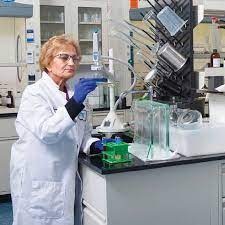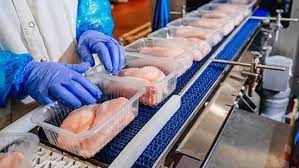
HVAC is widely used in several major industries in the U.S. for not only providing climate control for employees but also for manufactured and stored products. We typically think of an HVAC technician as a person who installs, services, and repairs equipment and systems. Certain industries depend on commercial HVAC services to keep businesses strong and functioning well. Contact us today for more information.
Companies that depend on HVAC services expect technicians to hold the appropriate certifications for their state. They know they will be getting some of the best skilled and knowledgeable men and women to work on their systems.
What Is HVAC Certification?
HVAC certification is required along with an HVAC license to work in or start an HVAC service. It is a professional certification that demonstrates technicians have the skills, knowledge, and proficiency to install, service, and repair:
- Heating equipment and systems
- Ventilation systems
- Air conditioning equipment and systems
- Refrigeration equipment and systems
Federal-level EPA regulations under section 608 of the Clean Air Act require that technicians who maintain, service, repair, or dispose of equipment that could release refrigerants into the atmosphere must be certified. HVAC certification exams are given during a college’s training program to test students’ industry competencies.
The nation’s largest nonprofit certification organization for technicians is the North American Technician Excellence (NATE). Customers and employers trust technicians certified by NATE. Contact ITI Technical College today to learn more about our Air Conditioning & Electrical Technology Certificate Program.
Pharmaceutical Industry
 The pharmaceutical industry manufactures and stores medications for shipment to warehouses and medical facilities. Factories, warehouses, local pharmacies, and medical facilities such as hospitals must exercise caution to keep these medications at the correct temperature and humidity levels.
The pharmaceutical industry manufactures and stores medications for shipment to warehouses and medical facilities. Factories, warehouses, local pharmacies, and medical facilities such as hospitals must exercise caution to keep these medications at the correct temperature and humidity levels.
Protecting pharmaceuticals is paramount and HVAC technicians play a role in keeping them safe. The best type of equipment, devices, and systems are installed and monitored wherever medications are kept. A technician may work for a pharma company or an independent HVAC business.
Properly installed HVAC systems maintain the optimal environmental conditions for not only manufacturing and storing but also for testing drugs. Air quality, pressure, and ventilation must kept to industry standards. Many products and processes are sensitive also to temperature and humidity fluctuations. HVAC systems stabilize all these variables to prevent variations in products that could impact the quality and efficacy of products.
| “Companies that depend on HVAC services expect technicians to hold the correct certification for their state. |
Healthcare Industry
HVAC technicians also play valuable roles in the healthcare industry by creating comfortable environments for employees and patients. HVAC systems are critical in mitigating the spread of diseases such as COVID-19, MERS, SARS, and tuberculosis.
Contaminated air is the healthcare industry’s ugliest enemy. Here are some issues that erupt:
- Excess humidity can create an environment for dangerous mold to thrive
- Bacteria and allergens can spread with air doesn’t flow properly
- Poor air quality can harm patient’s health
- Dust must be controlled and kept to a minimum
- Air coming in from outside must be filtered
A healthcare facility must have an organized and effective HVAC maintenance plan. There are federal standards and controls for healthcare environments. Failure to adhere to them and report of issues can result in hefty fines. Exposing patients to unhealthy conditions can dramatically affect their health and well-being.
Food Processing Industry
This industry depends upon food safety to maintain the quality and freshness of foods and beverages to ensure customer satisfaction and prevent food-borne illnesses. One of the essential keys to food safety is properly maintaining HVAC/R systems. HVAC/R plays these roles:
 Temperature Regulation – Foods and beverages often need specific temperatures for processing, storage, and preservation. An HVAC/R system provides the required temperature consistency.
Temperature Regulation – Foods and beverages often need specific temperatures for processing, storage, and preservation. An HVAC/R system provides the required temperature consistency.- Humidity Control – The correct humidity level must be controlled to prevent mold and bacterial development and growth. HVAC equipment helps regulate humidity levels to prevent condensation and reduce the risk of microbial contamination
- Air Quality Management – Undesirable airborne particles such as allergens, dust, and pathogens can contaminate food and beverage products. HVAC systems filter and purify the air to meet quality standards and reduce cross-contamination.
HVAC Certification In The Floral Industry
Our final area to cover is the floral industry. You have probably noticed that flower shops keep their lovelies in a cooled environment to keep them fresh and beautiful. Although flowers need water and sunlight, they also require acceptable levels of temperature and humidity. Air that is too hot or too cold too wet or too dry is bad for them. Pay attention to these standards:
- Temperature needs vary between varieties of flowers
- Humidity needs also vary between varieties of flowers from 80% to 95%, and a dehumidifier can be used for lowering moisture if needed
- AC Fan Speed should be set to prevent the AC from drying out flowers
- AC Location should be at the proper distance from the flowers
In summary, the four industries we have discussed all depend on reliable HVAC/R systems to keep their products fresh and their employees comfortable. If you want to become part of these viable industries, contact us to learn more about our training program.
For more information about graduation rates, the median debt of students who completed the program, and other important information, please visit our website: https://iticollege.edu/disclosures/





